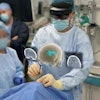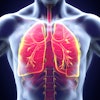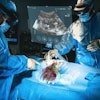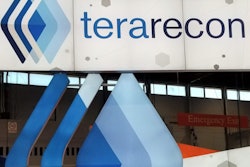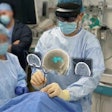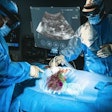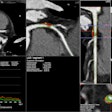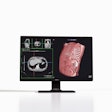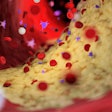
Artificial intelligence (AI) and advanced visualization firm TeraRecon has received two patents for AI technologies from the U.S. Patent and Trademark Office.
The patents protect TeraRecon's technologies that support how providers consume, integrate, and adopt AI algorithms into their medical imaging interpretation workflows, according to the vendor.
TeraRecon said that the first patent, System and Method for Medical Image Interpretation, includes technologies such as the following:
- An image identification and AI findings engine that leverages new patient imaging and diagnostic report data and interprets the related data
- An AI adjustment tracking engine that tracks the physician's changes and preferences, including interpretation status prompting and the ability to easily reject or omit findings from a report
- A machine-learning engine that adapts itself based on tracked usage data
- An AI communication engine that presents findings into an integrated review platform in a way that allows them to be interrogated, accepted, or modified. This includes a usage security feature that ensures user security information is available within the image data to allow restriction of use, including watermarks and embedded metadata.
- A dynamic AI results engine that leverages user modifications to derive a new image that is then reflected in the viewing engine and further reflected in the diagnostic report. Similarly, changes made inside the report will be reflected in the patient images and displayed in the reviewing platform.
- An AI reporting engine that prepopulates the diagnostic report with related measurements and captures any physician adjustments to the medical findings and presentation display protocols for the medical image data
The vendor said that the second patent, Medical Image Identification and Interpretation, encompasses technologies such as the following:
- An image identification engine that leverages new and past patient imaging data and diagnostic reports
- An AI engine assembler to orchestrate multiple AI engines and analyze the resulting data to influence additional operations and then deliver the desired findings for any particular imaging study
- An AI review engine that presents findings in a way that allows them to be interrogated, adjusted, and accepted (or not), within an integrated and single user experience
- An archive engine that saves and stores the generated findings
